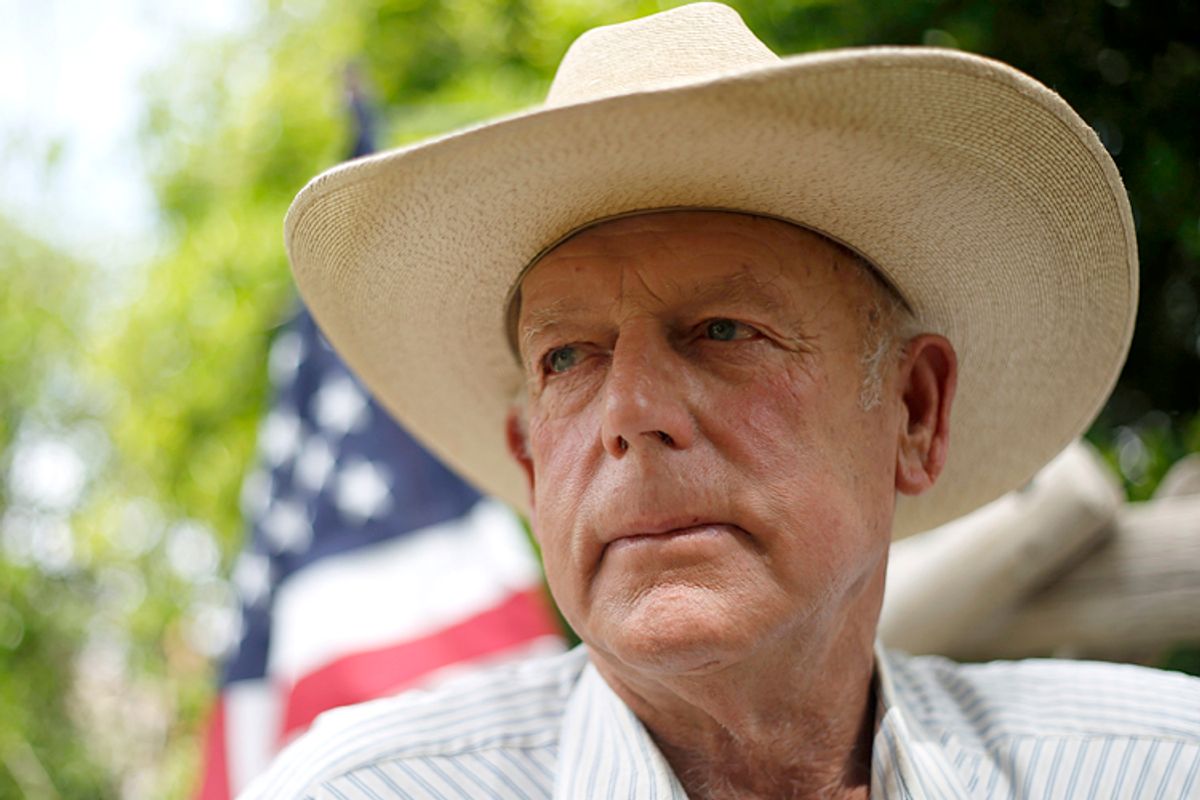Clive Bundy’s property rights dispute with the federal government appears now to be over. For those unaware, basically this rancher wanted to graze cattle on federally owned land without paying the grazing fee, due to some strange legal theory that the land was really his. The spectacle generated an obscene amount of commentary to which I am guiltily adding here. I wouldn’t be adding any commentary to it except that all of the analysis I read on it seems to have missed the mark.
More than anything else to have gotten this much attention in a long time, what the Bundy saga shows us is that property ownership is a purely governmental construct. The allocation of resources in this country is done by government-imposed institutions, most especially through the biggest government programs in history: property and contract law. At its root, the Bundy dispute is not about who owns the land. We already know who owns it because the law is pretty clear. It is about who gets to decide the question in the first place.
In essence, Bundy’s actions challenge everyone to ask themselves: Who is the state to determine who gets to use what resources? Or, alternatively, why should we think that the way the state has currently determined that question is the correct one?
Bundy is a clown whose particular pleas are totally unsympathetic, though his identity presentation triggers the right tribal signals, causing political blocs to churn in predictable ways. But the basic idea of challenging property laws in this way is not a new one and the question of how to create our scarcity allocation institutions is a perpetual one.
Before Bundy, for instance, we had the civil rights movement and its famed sit-ins. Among other things, those sit-ins were straightforwardly challenging the state’s construction of property law in such a way that empowers certain people to exclude others from places based upon their racist whims (whims that the state enforces with its police, as the sit-in participants experienced quite directly). More recently, efforts to prohibit anti-gay discrimination in public accommodations present a similar protest, arguing that our statist property law institutions should not operate so as to keep people out of certain places because of their sexual orientation.
These kinds of property law challenges even pop up in very mundane places. The New York Times reported in January of this year about a property law dispute between a McDonald’s in Queens and a group of elderly people. The elderly people believed that they should be allowed to sit in the McDonald’s for as long as they want, while the McDonald’s proprietor thought they should be limited. The violent state made the property law decision that the elderly must go and have started to kick them out for staying too long. But, like Cliven Bundy, they are reported to be bucking the state’s property law institutions as best they can by leaving when the police force them to, circling the block, and then buying something else and sitting back down.
From Bundy, to sit-ins, to anti-discrimination battles, to elderly patrons who really want to hang out in McDonald’s, these are all the same kind of dispute. The state creates laws that determine who can use what, when, where and how. And sometimes people disagree with those statist property laws and think they should be reconfigured along other lines.
The biggest mistake we can make when talking about these kinds of things is to act like the question of how to construct our scarcity allocation institutions is one of fact. It’s not. It’s not truly the case that Bundy is in the right or that the federal government is in the right, as if there is some kind of objective determination to be made on the matter. Who gets to use that land is totally made up and we can make it up however we want. The same is true over who gets to use any other piece of the world that resides within the borders of this nation.
Ultimately, I find Bundy’s claim wrong, not because it is against the law, but because I’d much rather he pay rent on the land (which, by the way, nobody makes) than have him capture the unearned windfall of land rents at the expense of everyone else. But I applaud the basic idea that we should be rethinking our economic institutions and whether they are actually serving us the way they ought to. When 75 percent of the things in this country are controlled by 10 percent of the people, I’d say they aren’t serving us well. And like Bundy, I’d be up for some civil disobedience against the statist property institutions that create and enforce that disparity as well.



Shares